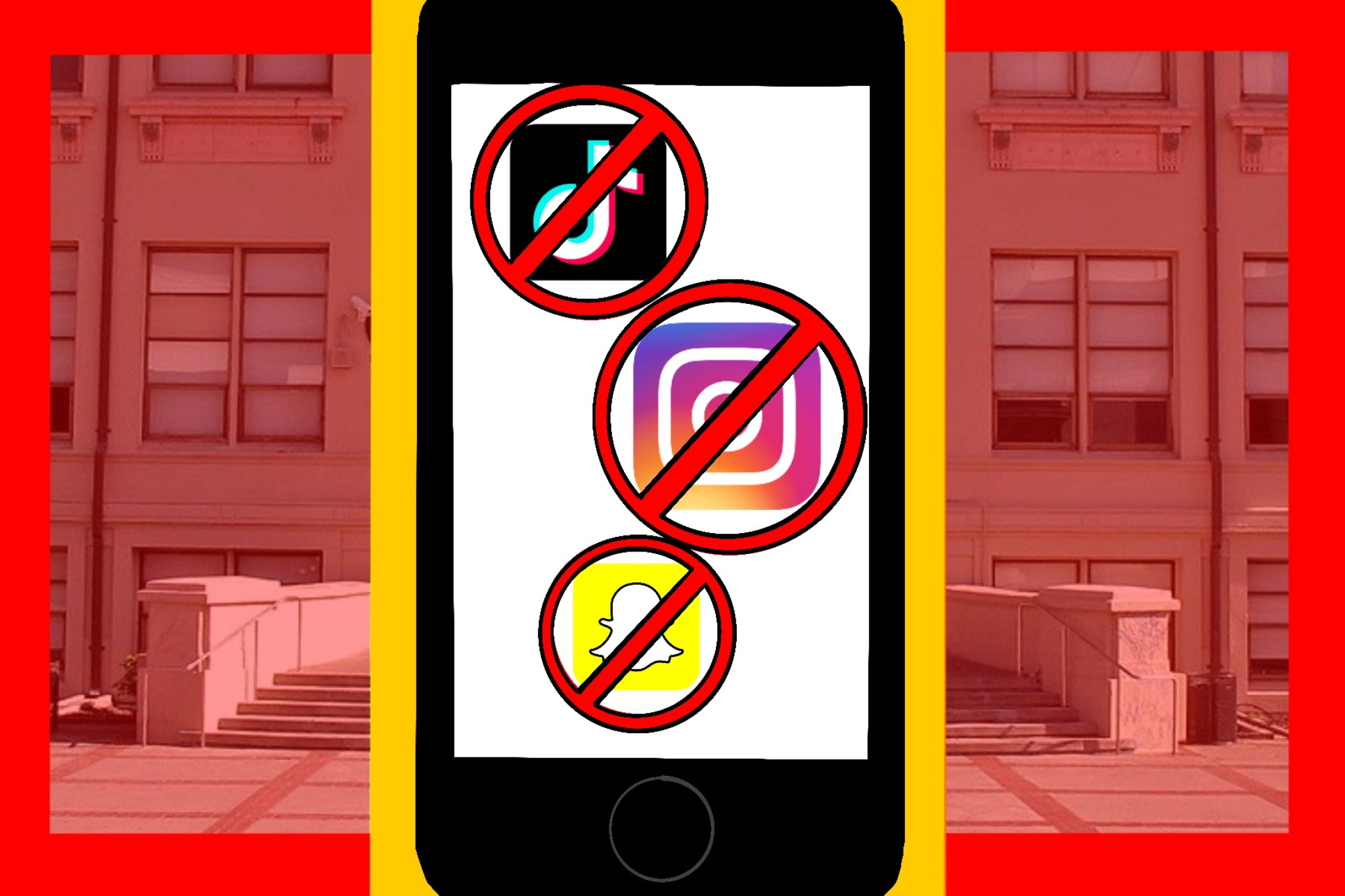Many adolescents have fallen into the addictive nature of Instagram Reels, TikTok’s For You page, and tracking users' snap scores — all of which can harm students' attention spans. To prevent this, many schools have started blocking specific platforms at school, a policy that helps students focus and minimize harmful internet content. However, despite the policy's good intentions, it is not fully effective in practice.
At the beginning of the new digital era, in 2000, the Children's Internet Protection Act (CIPA) was passed. It addressed kids' access to explicit information on the internet by forcing libraries and schools to block inappropriate websites that contained pornography, gambling, and online dating. According to the American Association of School Librarians, currently 98 percent of schools started blocking explicit websites and social media platforms on school grounds.
Berkeley High School has joined this trend by implementing a “firewall,” to restrict certain websites on school Wi-Fi. A filter that works similarly to Articial Intelligence tracks new websites and blocks them as necessary to ensure the system stays updated with the new trends. “I think it's a natural thing to do because (the administration doesn't) want students using our limited network for things that aren't school-related,” said BHS technology coordinator Matt Albinson.
Restricted websites include many popular social media apps, where content isn’t necessarily inappropriate but has the potential to be. Social media is often seen as a harmless distraction, however between April and June of 2023, 1.8 million pieces of violent and graphic content were taken down by Facebook. Blocking students from accessing social media on school Wi-Fi is necessary because harmful content is widespread.
Even though this policy is in place, students can easily bypass the firewall by turning off their Wi-Fi and using the cellular data available on the BHS campus instead. Many students have alternatively started using Virtual Private Networks (VPNs) to mask their phone’s current location, creating an encrypted, private tunnel, allowing them to access social media. This renders the blocking less effective, defeating its original purpose.
Some argue social media can inform students about current political events, pop culture, and more. In a politically turbulent time, staying informed in real-time is essential. Furthermore, for some kids, it is one of the only ways of communicating with their friends if their messages don’t work. Administration trying to strip these resources away from students could be harmful. Therefore, a better solution is for teachers to limit access to social media during class. By requiring students to store their phones in phone pouches, students will not be distracted in class but will still have access to the crucial resources of social media at other times.
Albinson explained his perspective on whether blocking is a successful technique to help students focus. “Ultimately it's up to students. It's not like the computer people can dictate whether (students) pay attention or not. There is always a way to find social media if you want it,” he said. “We're trying to create an environment where there are as few distractions as possible,” Albinson said.
Although the firewall approach isn’t always effective, it does discourage students from constantly checking social media. Even the need to turn one's Wi-Fi off is a gentle reminder of the time being wasted. However, while helpful in theory, ultimately, change must come from the classroom and students' desire to learn rather than administration.





